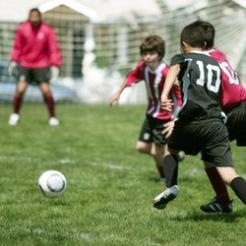Income for community sports clubs and small charities working in sport has fallen by 15 per cent in real terms over the last eight years, despite promises of an Olympic legacy, according to research by the Charities Aid Foundation (CAF).
CAF analysed the income of 1,624 amateur sports clubs and charities which filed accounts between 2004 and 2011, and found that organisations with an income below £100,000 had seen their income fall by 15 per cent in real terms. Organisations with an income above £100,000 experienced a rise of 3 per cent in real terms over the same period.
Richard Harrison, director of research at CAF, said: “The last eight years have been tough for many grassroots sports clubs and charities, despite the growing sense of excitement about the Olympics and the desire to secure a long-term sporting legacy.”
He added: “The spectacle of the Olympics is a fantastic opportunity for people to come together, experience the satisfaction of volunteering and support good causes as well as our Olympic athletes.”
The findings support those of the Sport and Recreation Alliance’s 2011 Sports Club Survey which found smaller organisations were struggling to recruit and maintain members.
Tim Lamb, chief executive of the Sport and Recreation Alliance said: “There seems to be a rather worrying vicious circle taking place. As membership levels fall, club incomes drop. Clubs then reduce their spending and investment in the club infrastructure is reduced.”
He called on local and central government to "work closely with the sector to deliver the full potential of the Games in order to get people more active".
Last month five grantmaking charities called for the creation of a £60m endowment fund to support grassroots community support as part of the legacy of the Olympic Games.









